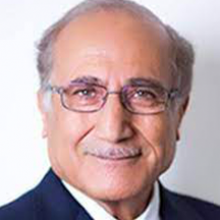You are here
Who knows what ISIS is?
Sep 15,2014 - Last updated at Sep 15,2014
One of my grandsons has learned the poem “Twinkle, twinkle, little star”. He finds it difficult to pronounce “how I wonder what your are”, so he conveniently changes that to “Hi, I under what you are”.
Obviously he has made up his mind to pronounce it the way he can, rather than be correct and slow tongued.
A similar analogy could be made with our understanding of the Islamic State, alias ISIS, aka ISIL.
If you think the name has many variants, wait until people begin to tell you what it is.
It has become sort of a classic term everybody talks about with “awareness”, but in reality hardly anybody knows exactly what it is.
Many years ago in Jordan (circa 1973) someone by the name of Abu Shakoush or the “hammer man” become the ubiquitous topic of discussion of Jordanians.
Once one said “Abu Shakoush”, everybody would start telling a story about him.
“He killed our neighbour last night and fled with all the jewellery in the safe,” one would say.
Another would tell how Abu Shakoush went into a pharmacy with his hammer, banged the pharmacist on the head and ran away with all the pain killers.
Few months later, Abu Shakoush faded into oblivion and no one heard from him or about him ever since.
IS will outlast Abu Shakoush, or even Jack the Ripper for that matter.
An international coalition is being formed to deal with this global nemesis.
We know that NATO held a conference to deal with this terrorist structure.
Al Azhar is in the process of creating an anti-IS paradigm to offset its hegemony on its simple-minded recruits.
Another regional conference was held in Riyadh to deal with this lurking threat.
Paris is hosting yet another international conference to find a way to face this brutal organisation and nip it in the bud.
Sheikh Yousef Al Qardawi (Egyptian-cum-Qatari) opposes the American-led coalition to fight IS.
Other Islamic hardline sheikhs call this coalition a “Zio-crusade” against Muslims and Islam.
People appear on TV channels and cable stations to debate over IS and how to wage a full-throttle and all-embracing campaign against it.
Will air strikes alone be sufficient to quell IS enthusiasm?
Military strategists spell out their wisdom over the division of roles among the various allies in order to encircle IS from air, sea and land.
Many wonder whether Al Shabab movement in East Africa, Boko Haram in West Africa, Al Qaeda in Asia, Al Nusra in Syria, etc., are all part the same organisational structure.
We see IS behead captured journalists in the most brutal and archaic manner.
We read their Twitter and social media recordings, and we get chills and goosebumps all over our bodies.
We know that such atrocities are committed by ungodly persons, but not much else.
Existence is defined by the British empiricist philosopher David Berkley as “being remembered”.
IS, accordingly, is very much alive.
It is on everybody’s mind and TV screens.
But after all this hoopla and media frenzy, can anyone tell what IS is, where it came from, whether it is an autonomous organisation or the creation of someone somewhere?
It is maddening to have such a devilish offshoot capture everybody’s attention, yet very little information available about it.
And to think that this is the age of information!
The writer, a former Royal Court chief and deputy prime minister, is a member of Senate. He contributed this article to The Jordan Times.













